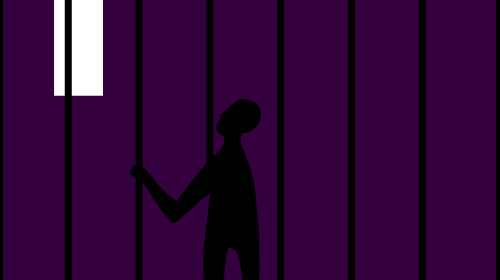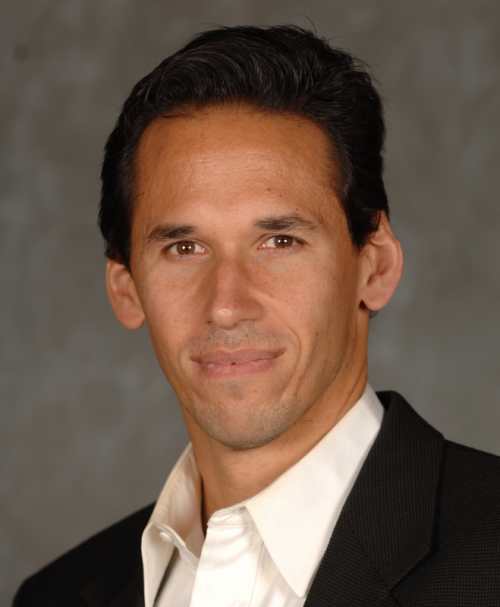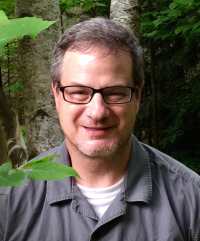IndieVoices Podcast: Europe's Alternative to the Brutal, Unforgiving US Prison System
A few years ago, I took a rather unusual writing assignment. I won’t say who it was from because I want to protect his identity. But he was in trouble. Big trouble, and was afraid of going to state prison. I had interviewed, and written about, others who were caught in the criminal justice system, and so he asked me if I would write something for him to say to the judge, something that might convince the judge to go easy on him. The guy pleaded with me, telling me that he would kill himself before going back to prison. He had been there before, and knew what horrible things awaiting him.

I did my best for him, ghost-writing a speech that he delivered to the judge on sentencing day. But it didn’t work. It couldn’t work. It did not matter what the circumstances of the conviction were nor how much sense the words I wrote made. The judge could do nothing but send him to state prison. This is because the system is not set up to care about individual stories, individual circumstances. The criminal justice system in the United States is not interested in “correction” at all, but merely in caging people. In this country, it’s what we have grown used to, but it’s important to know that it’s not the only way of doing things.
That’s where authors like Marc Howard come in. In his book, Unusually Cruel: Prisons, Punishment, and the Real American Exceptionalism, from Oxford University Press, Marc compares and contrasts prison conditions in other industrialized democracies—France, Germany, and the UK—with that of the United States. Marc is professor of government and law and director of the Prisons and Justice Initiative at Georgetown University, and he was one of my guests on our IndieVoices podcast focusing on criminal justice reform.
Listen to the entire interview here, or read some of the highlights below.
Interview Highlights
On the goal of the criminal justice system in the United States vs. European countries.

Marc Howard: 'There's this concept of paying your debt to society, that it's over when your time is served. ... But not in this country.'
They differ quite significantly, actually. The goal of the criminal justice system is to protect society. So it’s to keep somebody who’s dangerous off the streets at the time that person is dangerous. In this country it’s a more permanent exclusion of society and it’s very sweeping in terms of the numbers of people that we incarcerate and the lengths for which we keep them locked up, and of course the conditions under which we keep them are very, very brutal and severe in the US compared to other advanced democracies.
On his own “second chance” when he was arrested in England during his youth.
I was a bit troubled and doing stupid things and not thinking clearly, and that led me, while on a trip with my eighth-grade soccer team to London to discover the thrill of shoplifting.. We got caught, were taken to a police station and locked in that jail cell for much of the day.
It was a scary moment, and while it ended up getting resolved relatively easily, it just made me realize, especially when I look back, that I was making a lot of choices at that time in my life that were really stupid and very poor. And that’s not atypical for boys in particular of that age to be making stupid choices, whether it’s peer pressure, or whether it’s the lack of a fully formed prefrontal cortex in their brain.
I was very fortunate in that set of stupid choices I made at that time didn’t come to define me. But for many other Americans, it can start very young and then it stays with you, the stain of a juvenile record, then then there’s something else that happens and suddenly they’re a repeat offender and suddenly somebody’s tried as an adult, it can spiral very quickly in a negative direction.
I think that we are really very, very harsh in how we judge people—certainly juveniles, but I think all people. So, the second chances part is I think the big difference between the US and other countries.
On how the United States can begin to think like Europeans on the goals of criminal justice.
The way that we have been treating people in this country is inhumane, and that’s why the title of my book is Unusually Cruel. And that’s obviously a little play off the 8th Amendment, about the prohibition of cruel and unusual punishment, which I think we’re doling out on a daily basis in this country when people are locked up and then when they get out.
There’s this concept of paying your debt to society, that it’s over when your time is served and when you’re released. But not in this country, because we have tremendous barriers to employment, to housing, to productive reentry that is almost asking people to go back into a life of crime when it’s almost impossible to live productively without that.
Other countries have found ways of being much more supportive of people who have a criminal past and not holding it against them. There are obviously all kinds of exceptions in certain kinds of employment, but we have a very blunt instrument here, which is basically lock people up for very long periods of time and then try to make it really hard for them to succeed and survive, even, on the outside.
You can also subscribe to all our IndieVoices podcast episodes on iTunes, Soundcloud, and Google Play.

Howard Lovy is executive editor at Foreword Reviews. You can follow him on Twitter @Howard_Lovy
Howard Lovy
